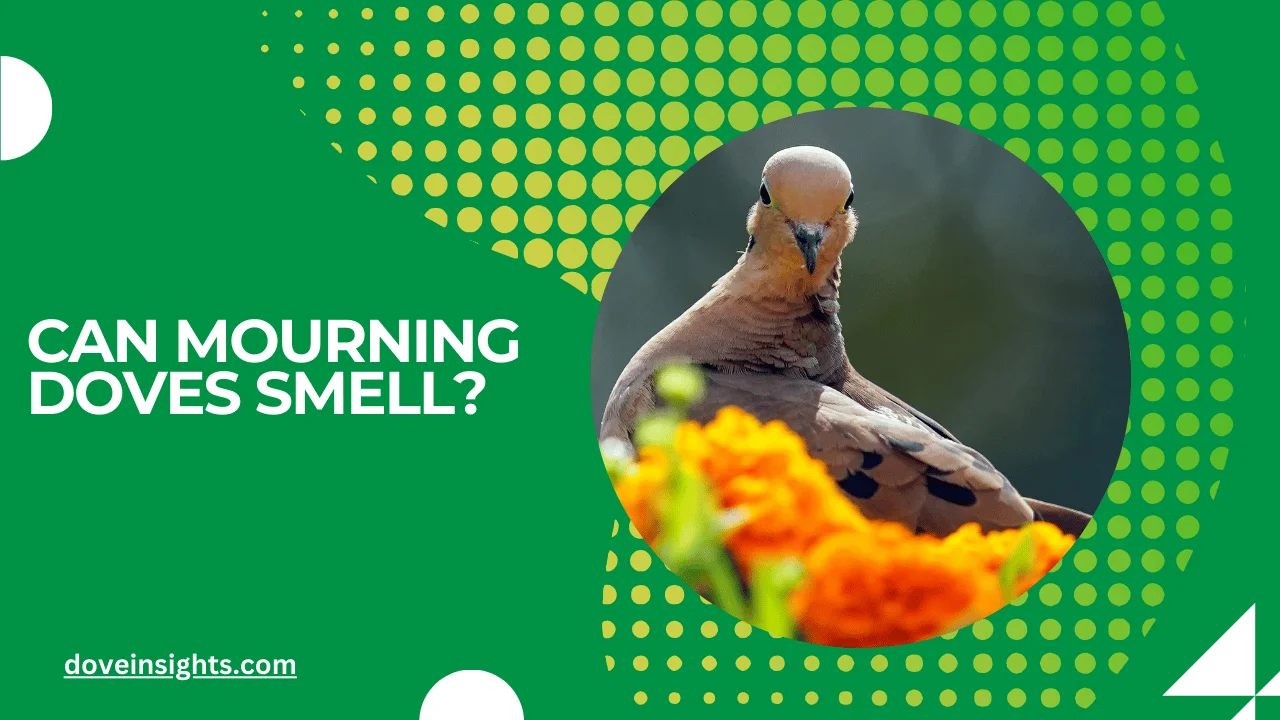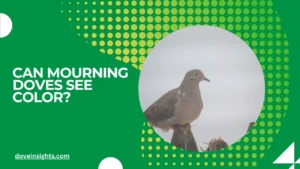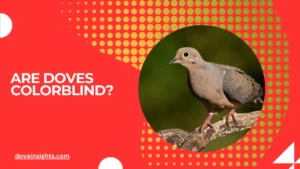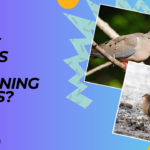Mourning doves are some of the most graceful and symbolic birds in North America, often associated with peace and tranquility.
But while many are familiar with their calming coos and serene flight, there’s still much we don’t know about these birds’ abilities. Can mourning doves smell? It’s a question that might not come up in casual birdwatching, yet understanding their sensory capabilities can reveal fascinating details about how they interact with the world.
While we often assume that birds rely heavily on their vision and hearing, the role of smell in avian behavior is lesser-known.
In fact, most birds—including mourning doves—have been thought to have a rather limited sense of smell. But is that really the case? In this article, we’ll explore the science of avian olfaction, investigate how mourning doves use their senses, and determine whether their ability to smell is a critical part of their survival toolkit.
If you’ve ever wondered how mourning doves navigate their environment or communicate with one another, this post will provide answers to these intriguing questions!
Contents
- 1 How Do Birds Use Their Sense of Smell?
- 2 Are Mourning Doves Completely Dependent on Their Sense of Smell?
- 3 The Science Behind Avian Smell: New Discoveries and What They Mean for Mourning Doves
- 4 Conclusion:
- 5 FAQ’s
- 5.0.1 Can mourning doves smell?
- 5.0.2 What is the role of smell in mourning doves’ behavior?
- 5.0.3 How does the sense of smell compare between mourning doves and other birds?
- 5.0.4 Do mourning doves rely on smell to find food?
- 5.0.5 Can mourning doves use smell to detect predators?
- 5.0.6 How often should I feed mourning doves?
- 5.0.7 Can I attract mourning doves to my backyard?
How Do Birds Use Their Sense of Smell?
Before diving into whether mourning doves can smell, it’s important to understand the role of smell in birds in general. Most people are familiar with the idea that humans and mammals rely heavily on their olfactory senses to detect food, mates, or danger.
However, in the world of birds, vision and hearing have traditionally been thought of as their primary senses. Smell is often considered a secondary or even underdeveloped sense in many species.
That being said, recent research has revealed that smell plays a significant role in the lives of some bird species. Certain birds, such as vultures and kiwis, have highly developed olfactory systems that help them find food or navigate long distances.
These birds use olfaction to detect scents from miles away, whether it’s the scent of a carcass or the subtle odors left by other creatures.
So, while it’s clear that many birds use their sense of smell, how does this apply to mourning doves? Understanding the basic structure of their olfactory system is the first step toward unraveling their smell capabilities. Let’s explore how mourning doves’ olfactory anatomy might compare to other birds.
The Olfactory Anatomy of Mourning Doves: What We Know
When we think about a bird’s ability to smell, we first have to look at the structure of its olfactory system. In mammals, this system includes the olfactory bulb, which processes smells and sends signals to the brain.
In birds, however, the olfactory bulb is often smaller and less developed, suggesting that their sense of smell may not be as sharp as that of mammals.
Mourning doves, like most birds, have olfactory receptors located in the nasal cavity, which is responsible for detecting airborne molecules.
However, their olfactory system is not as advanced as that of some species, such as vultures or certain seabirds that rely on smell for navigation or finding food. Mourning doves, in fact, possess a relatively small olfactory bulb compared to other birds, which suggests that their reliance on olfaction is likely limited.
Nevertheless, some studies show that mourning doves can still detect certain odors, especially those linked to food and danger.
This raises an interesting question: how do mourning doves use their limited sense of smell to navigate their world? In the next section, we’ll examine how mourning doves might use their olfactory capabilities in practical ways.
How Mourning Doves Might Use Their Sense of Smell
While mourning doves are not known for having an acute sense of smell, they may still use their olfactory abilities in key situations.
Unlike some birds, mourning doves do not primarily rely on their sense of smell to locate food, as their diet mainly consists of seeds, grains, and small fruits that they can find with their excellent vision. However, it is possible that their sense of smell plays a more subtle role.
For instance, mourning doves might be able to detect scent markers left by other birds, especially when it comes to finding mates or establishing territory.
Many birds use pheromones or other chemical signals to communicate with one another, and while mourning doves might not have a highly refined sense of smell, they could still be influenced by scent cues when it comes to reproduction and territory defense.
They may also use smell to avoid dangerous areas where predators have left behind strong scents.
Additionally, food scent might still play a small role in helping mourning doves locate ripe seeds or fruit. For example, certain seeds or berries may emit subtle fragrances that birds can pick up on, guiding them to the most nutritious sources. However, vision and taste are likely far more important than smell when it comes to selecting food.
Are Mourning Doves Completely Dependent on Their Sense of Smell?
No, mourning doves are not fully dependent on their sense of smell.
Their primary senses are sight and hearing, which they use to navigate their environment, find food, and communicate with one another. Mourning doves have excellent vision, which helps them spot food from a distance and detect predators.
They also rely heavily on their hearing to communicate with other doves, especially when it comes to courtship and maintaining their territories.
Despite their less-developed olfactory system, mourning doves are highly adaptable and able to rely on other senses to fulfill their basic needs.
While smell might help them in certain contexts, such as detecting potential mates or avoiding predators, their ability to survive and thrive is not dependent on their olfactory capabilities.
Mourning doves also exhibit remarkable navigation skills, relying on visual cues such as landmarks and the position of the sun, which are far more important than scent.
So, while their sense of smell might play a small role, it’s clear that mourning doves are not heavily reliant on it for their everyday activities.
The Science Behind Avian Smell: New Discoveries and What They Mean for Mourning Doves
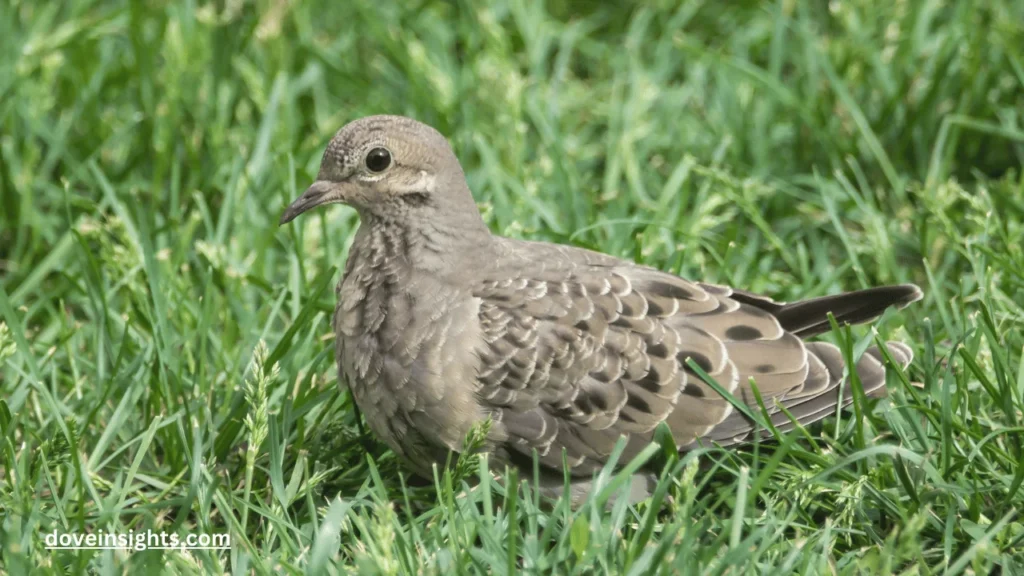
Recent studies have shown that the understanding of avian olfaction is evolving. Historically, scientists believed that most birds, including mourning doves, had very limited olfactory abilities. However, emerging research is challenging this view.
In fact, some studies suggest that birds have a greater ability to detect scents than previously thought.
For example, recent research on birds such as pigeons and hummingbirds has shown that they can identify specific odors and even use them for navigation.
This has led scientists to rethink how birds use their sense of smell, not just for food but also for social behavior and communication.
Although mourning doves do not rely as heavily on smell as some other bird species, this research hints at the possibility that mourning doves may use their olfactory abilities in more sophisticated ways than we currently understand.
Further studies could reveal whether mourning doves are able to detect and react to smells related to their environment, food sources, or even the presence of other birds. The growing understanding of avian olfaction highlights the complexity of bird behavior and sensory adaptation, and it’s likely that mourning doves’ sense of smell is more significant than we might expect.
Conclusion:
In conclusion, mourning doves do possess a sense of smell, but it is relatively limited compared to some other bird species.
While they are not dependent on their olfactory system for survival, they may use smell in certain contexts, such as identifying potential mates, avoiding danger, or detecting food. Mourning doves are far more reliant on their vision and hearing, which are critical for their survival and social interactions.
The study of avian olfaction is still evolving, and future research may uncover new insights into how mourning doves—and other birds—use their sense of smell in ways we may not yet understand.
While it’s clear that smell is not the primary sense for mourning doves, their sensory world remains fascinatingly complex, revealing just how finely tuned these birds are to their environment.
FAQ’s
Can mourning doves smell?
Yes, mourning doves have a limited sense of smell, though it is not as developed as in some other bird species.
What is the role of smell in mourning doves’ behavior?
While mourning doves are primarily dependent on sight and hearing, their sense of smell might help them detect food, avoid predators, and identify mates.
How does the sense of smell compare between mourning doves and other birds?
Mourning doves have a less developed olfactory system than certain other birds, like vultures, who rely heavily on smell to find food.
Do mourning doves rely on smell to find food?
Mourning doves primarily use vision to locate food, though they might occasionally detect food sources using their sense of smell.
Can mourning doves use smell to detect predators?
Mourning doves may use smell to avoid areas where predators have left behind strong scents, but vision is more important for spotting danger.
How often should I feed mourning doves?
You can offer food regularly, but make sure to provide appropriate seeds, grains, and fruits that align with their natural diet.
Can I attract mourning doves to my backyard?
Yes, you can attract mourning doves by offering a mix of seeds, grains, and fresh berries. Creating a welcoming space with a bird bath or water source can also help.

